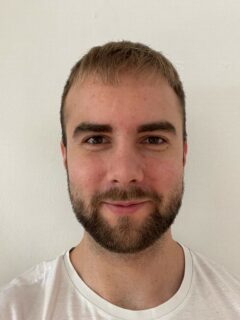Yannik Ott
Yannik Ott
Thesis Topic: Deep learning-based reconstruction of radial real-time cine MRI using image-based and k-space-based methods
Supervisors: Marc Vornehm, Jens Wetzl (Siemens Healthineers), Daniel Giese (Siemens Healthineers), Florian Knoll
Description
Various Deep Learning algorithms turned out to be high-performing tools to enhance accelerated MRI acquisitions. However, most of these proposed approaches work with cartesian k-space sampling [1]. Alternative patterns like radial sampling offer opportunities like self-gating and less susceptibility to motion. Furthermore, radial acquisitions are more efficient at high acceleration factors [2]. Hence, DL methods could benefit from that.
DL reconstruction methods can be divided into two main branches: image- [3] and k-space-based [4]. The main goal of this thesis is to compare both approaches for radial k-space data. We will use the open-source OCMR data set and self-acquired radial data. Since the OCMR data was acquired with cartesian sampling, radial data acquisitions are simulated here. This offers the opportunity to investigate the generalization of such simulations. Finally, self-gating techniques will be investigated.
[1] Lundervold, Alexander Selvikvåg, und Arvid Lundervold. „An overview of deep learning in medical imaging focusing on MRI“. Zeitschrift für Medizinische Physik 29, Nr. 2 (2019): 102–27.
[2] Feng, Li. „Golden-angle radial MRI: basics, advances, and applications“. Journal of Magnetic Resonance Imaging 56, Nr. 1 (2022): 45–62.
[3] Hauptmann, Andreas, Simon Arridge, Felix Lucka, Vivek Muthurangu, und Jennifer A Steeden. „Real-time cardiovascular MR with spatio-temporal artifact suppression using deep learning–proof of concept in congenital heart disease“. Magnetic resonance in medicine 81, Nr. 2 (2019): 1143–56.
[4] Vornehm, M, J Wetzl, D Giese, R Ahmad, und F Knoll. „Spatiotemporal variational neural network for reconstruction of highly accelerated cardiac cine MRI“. European Heart Journal-Cardiovascular Imaging 23, Nr. Supplement_2 (2022): jeac141-018.

